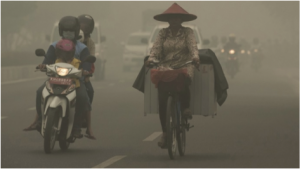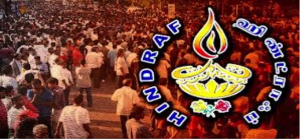Written by Balqis Ariffin
History
Primarily, the dispute over the South China Sea between several nations namely Malaysia, China, Brunei, Vietnam, and the Philippines have significantly escalated in the recent years. Despite that, such territorial dispute tends to undermine although it was on the brink of global warfare. Historically, the tension has occurred for centuries that includes militarizing, however, the failure to achieve resolution with each country backing up their claims have subsequently led to a prolonged dispute.
Besides that, the United States has also interfered with military intervention to ensure the area is accessible for shipping and air routes, in which it was merely due to the freedom of navigation and they stated that they have a neutral stance. In addition, the dispute between the neighboring countries was mainly due to the territorial and sovereignty dispute in the South China Sea as well as two uninhibited islands namely Spratlys and Paracels which are still not thoroughly explored, and it was believed that both islands possessed natural resources. Apart from that, the ownership of such area could enable the country to control the major shipping routes and also a vast supply of fisheries.
Moreover, China has claimed the most territorial ownership of the nine-dash-line, in which they provide historical evidence to support their claim in 1974. However, several other nations refuted such claim, which includes Vietnam as they argued that they have ruled the area since the 17th century. Meanwhile, Malaysia and Brunei also claim the zone by referring to the United Nations Convention on the Law of the Sea as it falls within the economic exclusion.
News identity
The New Straits Times
Historically, the New Straits Times was founded in 1845, in which it was known as The Straits Times during that time but only in 1974 that it changes its name. Besides that, the New Straits Times which is an English language daily newspaper is owned by the Media Prima, hence it tends to have a pro-government stance in its reporting.
Asia Times
Meanwhile, Asia Times or previously known as Asia Times Online was initially established in 1999 in which it was owned by a Thai media mogul, Sondhi Limthongkul. Despite that, Asia Times is considered as a Hong Kong news portal that emphasized on economic, politics and business. Basically, the news portal was a successor for the now-defunct newspaper, Asia Times. Most of all, in the year of 2006 the New York Times had attributed it as the leading regional publication in Asia.
Agenda
Most of all, by referring to the article published in the Asia Times, the news organization tends to be cynical towards Malaysia as it was merely established in Hong Kong, in which it has significant interest to support China in the territorial dispute. Besides that, the nature of the article in overall signifies negative remarks against Malaysia as the usage of the word speaks softly in the headline of “Malaysia speaks softly in the South China Sea” indicates that our nation was more reticent than Vietnam and Philippine. The author has failed to provide substantial evidence to support his statements, thus the article itself has cultivated negative perceptions toward Malaysia.
On the other hand, the article published in the New Straits Times tends to show support towards the government as it must be emphasized that the news organization is owned by the ruling party. Therefore, the news organization serves as a channel to shield and counter the conduct taken by the government from any criticism. This is evident as the news signifies that the decision and action taken by the government is precise regarding the issue of South China Sea dispute and its relationship with diplomatic ties with China, this can be seen when the New Straits Times reported that the current Foreign Minister quashed the statement made by opposition party that the ruling party is lenient towards China over the dispute.
Practicalities
Besides that, the article published in Asia Times also tends to cite the source of their information to ensure the reliability and validity of the news. This is evident as the author provides substantial evidence to support his claims that the government takes a political stance regarding the South China Sea dispute and Pulau Batu Puteh. In addition, the article also provides facts and figures to show the significant relationship of economic dependency that Malaysia has towards China, however, the author does not cite the reference for such facts given in the article.
Furthermore, the article also provides profound analysis on the lenient stance taken by Malaysia with the terrorist threat of the Islamic State (ISIS), in which it is a far greater imperative crisis than the South China Sea dispute and the Malaysia government sought technology and equipment support from Australia to counter the terrorism in the nation.
Briefly, the news is also solely written based on one’s or even the organization ‘s viewpoint which was formed with investigation and research from various types of sources, but the author failed to cite it in the article. Therefore, it may be perceived as independent article due to the nature of its arguments, but if it was sparingly observed the news is absent from the practicing balance values as it does not include Malaysia’s perspectives
On the other hand, the news published in the New Straits Times tends to signify the support towards the government only, this is evident as the article serves as a mere counter against other alternative views which criticize the government. Moreover, the manner of the news is obviously cynical towards other alternative views that could damage the reputation of the government.
Basically, by referring to the article, it only quoted the statements by Foreign Minister, Anifah Aman who counter the claims made by Rais Hussin, the opposition leader regarding the reticent stance Malaysia taken on South China Sea dispute due to the diplomacy ties with China.
Besides that, the article also does not cite any references from other news organization as it was solely emphasized on the statement made by the Foreign Minister only. Therefore, the facts given in the news was through the defense of statements, hence it can be argued that it is somehow lacked from a variety of viewpoints in the aspects of national and international level as well. In addition, the nature of the news published in the New Straits Times is also absent from the element of independent, as it only emphasized on the government’s stance and views, thus it is somehow disputed.
Transparency
Apart from that, in the aspect of transparency, it can be stated that the article published in the Asia Times is more transparent in the facts given compared than the New Straits Times. This is evident as it is more critical and in-depth analysis on the issue which has subsequently led to the notion that it published information and arguments that are not reported in our local media. This is due to the fact that the angle of the news tends to portray cynical and critical towards Malaysia.
On the contrary, the article in the New Straits Times indicates the opposite element of transparency, in the sense that it only emphasized on the information that signifies the support towards the government. Therefore, such deficiency will eventually result in the absence of alternative views from reported in the news, thus it lacked in transparency as the article serves as the voice for the government to exert their control on the public.
References
Bemma, A. (2017, November 23). Malaysia: A Rohingya Safe Haven? Retrieved December 20, 2017, from Al Jazeera: http://www.aljazeera.com
Bernama. (2017, October 15). Life In Malaysia Way Better, Says Rohingya Refugee. Retrieved December 20, 2017, from Free Malaysia Today: http://www. freemalaysiatoday.com
Hutt, D. (2017, March 23). Malaysia speaks softly in the South China Sea. Retrieved December 10, 2017, from Asia Times: http://www.atimes.com
Shahar, F. (2017, November 18). Malaysia has a hand in prompting China-US to discuss security in South China Sea. Retrieved December 10, 2017, from The New Straits Times: http://www.nst.com.my




